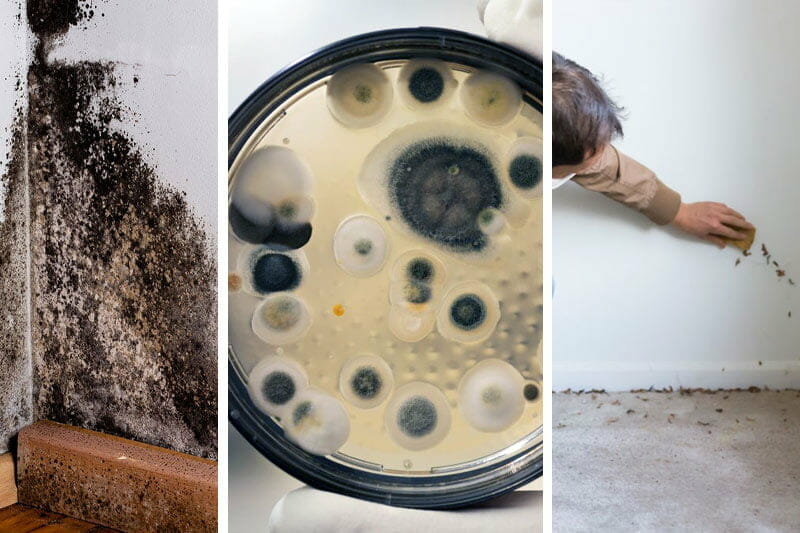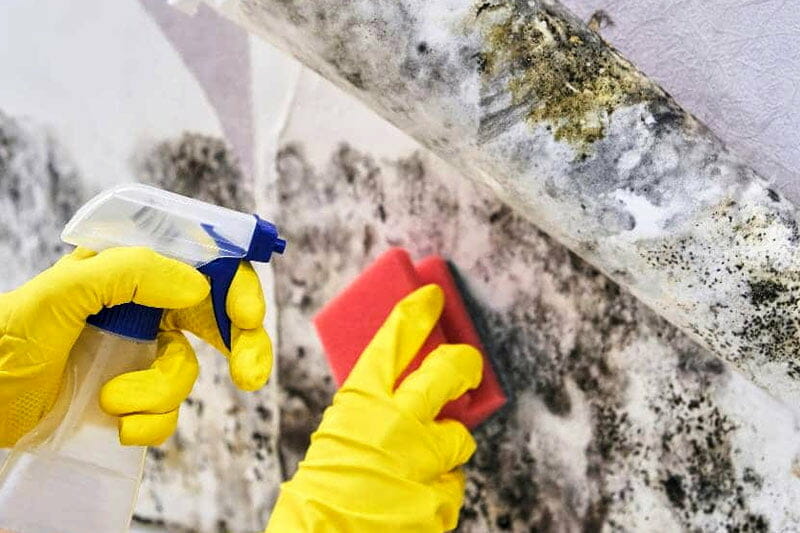Moving into a new apartment marks the beginning of a new journey. However, finding mold in your home can quickly dampen your excitement. As a resident of Alabama, what legal protections do you have when it comes to mold?

First, you have the right to live in a home free from mold. A landlord has the responsibility to maintain a rental home for their tenant that is safe, habitable, and in good repair. A tenant should bring a mold concern to a landlord’s attention to allow the landlord to rectify the problem.
What we cover
ToggleAre there mold laws in Alabama State?
There is no law or regulation directly addressing mold. Landlords can still be held liable for mold problems under the warranty of habitability, which requires landlords to keep their properties “livable”. However, this warranty is controversial, since there is no defined outline of what “livable” means.
Tenant rights in Alabama
Documenting the problem should be the first thing you should do if you think that mold has taken over your apartment.
How to act - tips
- Take pictures of visible mold growth on walls and floors. A picture can be a big help when you need to prove that there is mold in your apartment;
- Document the results of mold testing that you will do;
- Check the prior traces of mold in the apartment, previous residents may have had mold issues too;
You can break the lease because of mold if you can show proof that it poses an “imminent threat” to your health.
On the other hand, if you do not want to break your lease because of the mold problem keep in mind that it is up to your landlord to resolve the problem. The landlord must take action by hiring experts and resolving all moisture issues that may have been caused by the existing mold.

Landlord responsibilities in Alabama State regarding mold
Although there is no specific law in Alabama State that directly addresses the mold as the responsibility of the landlord, a landlord is responsible for the mold if the tenant moves into an apartment with an existing mold problem. In that case, Alabama law states that the landlord is responsible for the removal of that mold.
What to do if the landlord fails to remove the mold?
The landlord may be held liable if he fails to remove the mold in your apartment. But you must prove that the mold has caused you an illness eventually.
In other words, the landlord must be sure that the house is free of mold or mustiness before you sign the lease. If you move into a rental property with an existing mold, Alabama State law states that landlords are responsible for the removal of that mold.
Your legal rights as a tenant regarding mold in Alabama
If you move into the apartment and discover mold, the landlord is responsible for removing it as long as he knew about its presence at the time of the lease, and you have no obligation to inform him of the existence of the mold.
If the owner neglects the existence of the mold and distances himself from its removal it is best for you to seek legal advice on whether they are responsible for any health problems that you have suffered such as damage to your furniture or belongings.
How you can determine the uninhabitable environment in Alabama?
It depends on the part of the state that you are living in. But in general, mold and lack of water and electricity for extended periods can be considered uninhabitable living conditions.
Legal actions should be taken against the party responsible for such conditions, especially if he refuses to repair the uninhabitable conditions as soon as possible.
Resource: Full list of states mold laws
How long does a landlord have to fix a mold problem in Alabama?
The sooner you address the mold problem to the landlord the faster he will react. But how much time does he have according to the Alabama State law?
14 days is the time frame in which the landlord had to fix the mold problem according to Alabama State law.
First, the tenant should submit the written request for repairs to the landlord. When the landlord receives the request he has 14 days to fix the problem, but he fails to make repairs you can take legal action. Your lawyer can help you get out of your lease and get your security deposit back.
Also, a tenant can move out of the apartment and withhold the rent in the future if the landlord does not perform repairs. But if you decide to stay in the rental you can sue the landlord for damages. That should be the difference between the stated rent and the rental’s worth due to its deplorable condition.

Can you withhold the rent due to mold in Alabama?
The answer to this question varies from situation to situation.
For example, if you as a tenant can prove that mold is dangerous you can break the lease. On the other hand, it depends on whether or not the landlord can either fix the problem or release you from your rental agreement without penalty.
If the landlord can’t fix the mold problem then you should be released from the rental agreement.
Are there regulations for indoor air quality in Alabama?
There is no specific law for indoor air quality in Alabama State currently. Also, there are no laws in Alabama concerning residential or commercial building mold standards, testing requirements, nor is there any contractor accreditation/certification for contractors performing mold testing or remediation activities. EPA does not regulate mold or mold spores in indoor air quality too.












